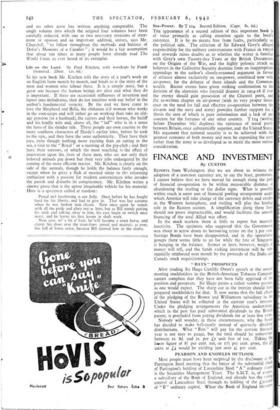THE appearance of a second edition of this important book
is of value primarily as calling attention again to the book's existence. It is by no means free from faults, particularly on the political side. The criticism of Sir Edward Grey's alleged responsibility for the military conversations with France in 1905-6 and onwards raises doubts as to whether the writer is familiar with Grey's own Twenty-five Years or the British Documents on the Origins of the War, and the highly polemic attack _on believers in the Collective Security doctrine form an inappropriate appendage to the author's closely-reasoned argument in favour of reliance almost exclusively on sea-power, combined now with air-power, for the defence of these islands and the Common- wealth. Recent events have given striking confirmation to his derision of the alarmists who foretold disaster in 1914-18 if ever the enemy should gain possession of the Channel ports, and the re-written chapter on air-power (with its very proper insist- ence on the need for full and effective co-operation between the air-arm and the navy and army) provides further support for a thesis the core of which is pure isolationism and a lack of any concern for the fortunes of any other country. T 124 (writing before December 7th) deplores the existence of naval parity between Britain, once substantially superior, and the United States. His argument that national security is to be achieved with the greatest economy of both money and men by expanding the navy rather than the army is so developed as to merit the most serious consideration.


























 Previous page
Previous page